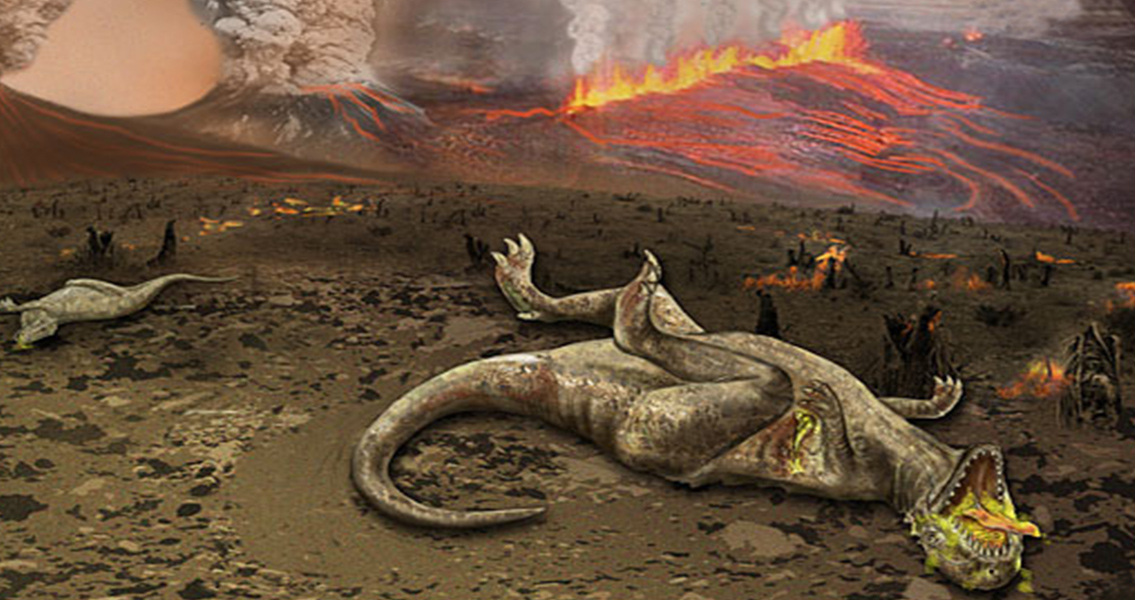<![CDATA[66 million years ago, there was an extinction event that wiped out Earth's non-avian dinosaurs. A recent study by Princeton University has provided fresh insight into what exactly may have caused this dramatic event. According to researchers from Princeton, a new geological timeline shows that a series of colossal volcanic eruptions in India 66 millions years ago propelled enormous amounts of climate modifying gases into the atmosphere. This occurred immediately before, and throughout, the period when earth's non-avain dinosaurs became extinct. These findings support the idea that volcanic activity played a role in the Cretaceous-Paleogene, or K-Pg extinction, according to EarthSky. It also challenges the governing concept that a meteorite crash near what is now known as Chicxulub, Mexico, was the lone cause of the annihilation of non-avian dinosaurs. There is a volcanic range in western India known as the Deccan Traps, and according to the study, this primeval volcanic range (which used to be larger than France) erupted, releasing more than 1.1 million cubic kilometres of deadly lava. Blaire Schoene, lead author of the study and Assistant Professor of Geosciences at Princeton, believes that eruptions like the ones at the Deccan Traps need to be considered when researching dinosaur extinction, especially when they coincided with meteorite impacts. He said, "The precedent is there in Earth history that significant climate change and biotic turnover can result from massive volcanic eruptions, and therefore the effect of the Deccan Traps on late-Cretaceous ecosystems should be considered." Talking about the chronology of the eruptions, Schoene said, "The researchers used a precise rock-dating technique to narrow significantly the timeline for the start of the main eruption, which until now was only known to have occurred within 1 million years of the K-Pg extinction." Because of the amount of carbon dioxide and sulphur dioxide the exploding volcanoes were pouring out at the time, there would have been massive changes in climate. Long term warming and then short term cooling of the land and oceans resulted in highly acidic bodies of water, according to the researchers. Looking at a timeline over millions of years does not show the impact these volcanoes had on the environment. The researchers however, created zoomed in time lines using rock dating techniques, to more precisely date the Deccan Traps eruptions. This has allowed them to understand the eruptions' astounding environmental impact. The reason researchers were unable to see the impact of these eruptions on older timelines is because the gases coming from these volcanoes would have dissipated relatively quickly. This study has reinforced the case for volcanic activity being an important cause of dinosaur mass extinction, as well as the unusually rapid climate change in the period. Image courtesy of Wikimedia Commons User: National Science Foundation, Zina Deretsky]]>
New Evidence Supporting Volcanoes as Cause for Mass Extinction and Rapid Climate Change
